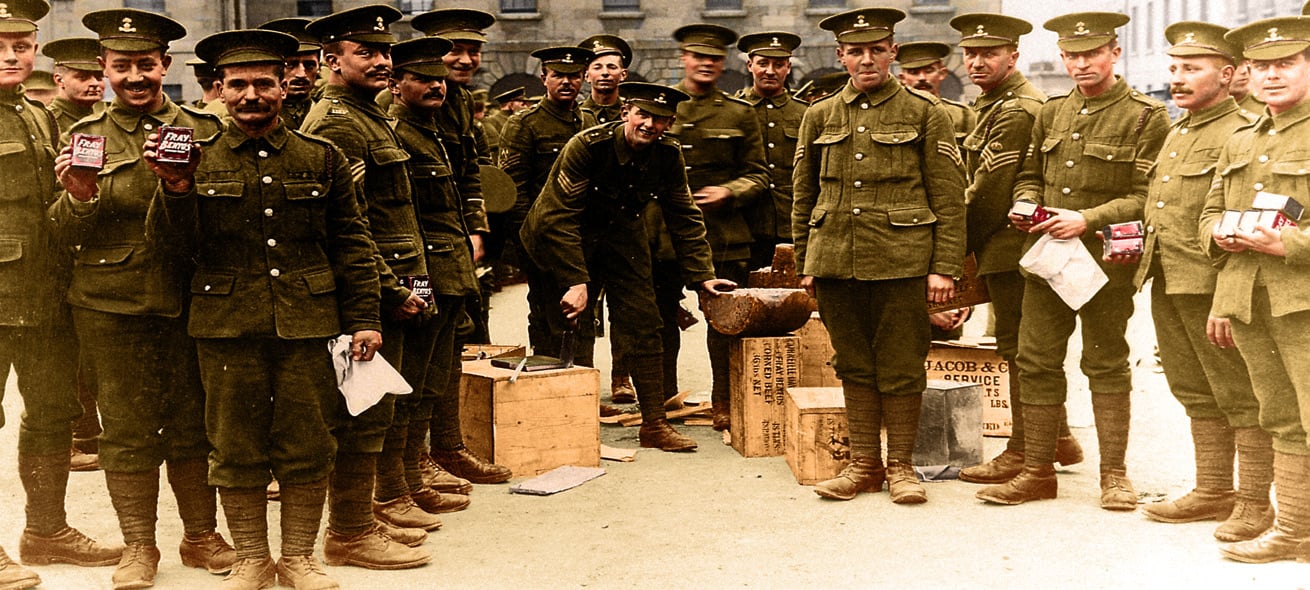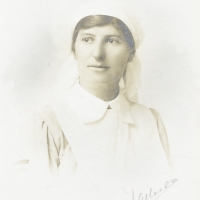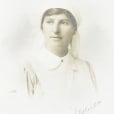Emma Duffin
5 October
I got more accustomed to the work and I began to realise more
which were the bad patients, to know a little what to do for
them and go gather from sister’s manner how to treat the
irresponsible ones, for many were quite delirious at night, when
to be firm and when to be sympathetic. No. 24, a little skeleton
of an Irish boy called Cairn Church I soon learnt was
Sister’s particular favourite and indeed the favourite of
the ward. He had been in some time and was not expected to live.
… ‘He would grind his teeth and clench his poor
miserable hands in agony, often never closing his eyes all night
yet when I asked him how he was when I came on duty I invariably
got the same response, ‘I’m grand, thank you.’
…
Then there was poor Billy Williams, one of the most pitiful. He
was off his head and even through the pathos of it one had to
laugh at his queer sayings. I had learnt by this time that poor
Billy was like a naughty child and had to be treated as one
occasionally. Sympathy was fatal. It only made him unmanageable.
He was cured of dysentery but too weak to recover and he died in
his sleep one night quite peacefully. ‘Do ye think’
said Paddy to me, ‘little Church seen him die? I doubt it
would frighten him. I put the screen up and I don’t think
he took notice but he niver let on. I’m after telling him
he was transferred to another ward. He was sleep when the
stretcher-bearers came.’ ‘I hope he
didn’t’, I said, feeling a warmth in my heart for
Paddy. … Paddy and I had become great friends and I soon
saw why all the patients loved him. ‘What do you
want?’ I asked one patient who was very ill and shouting
out. ‘Nobody just Paddy, just Paddy.’



